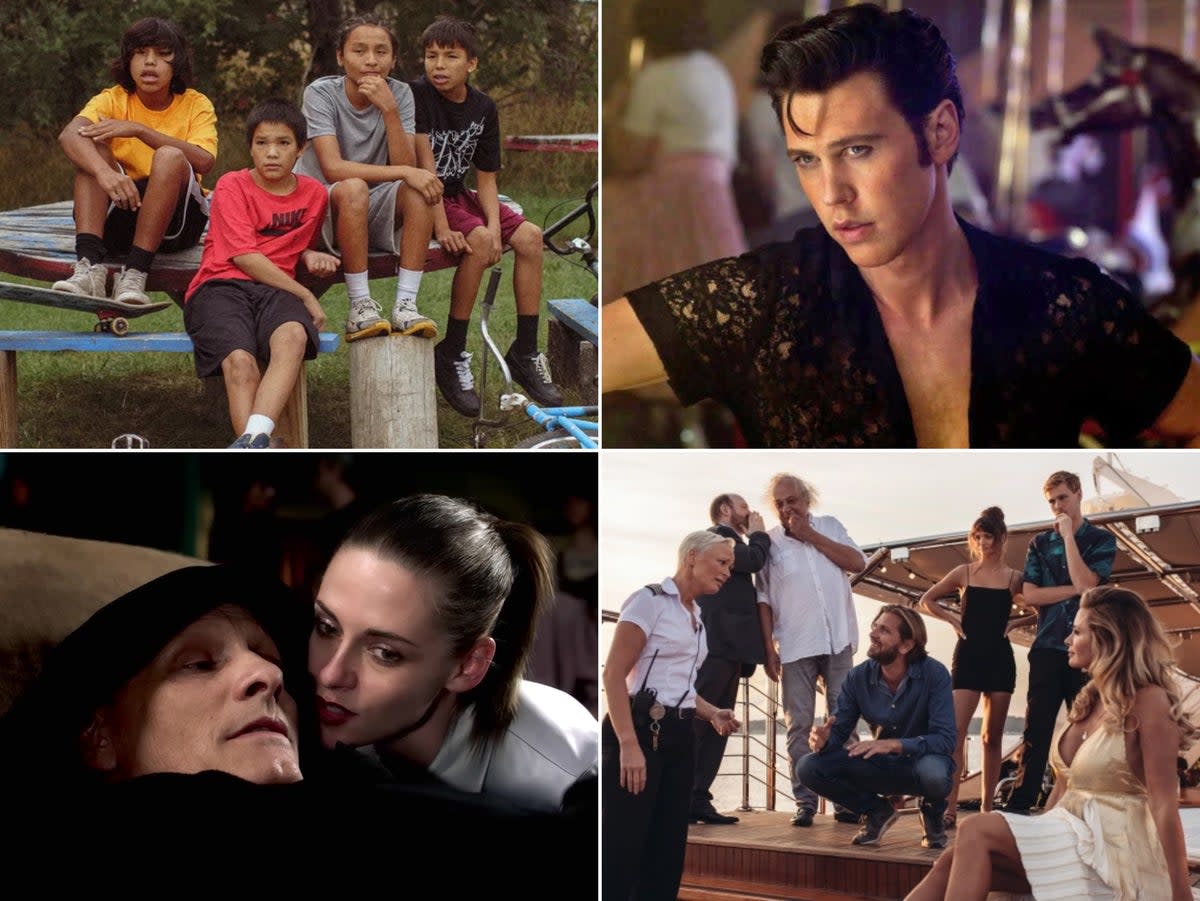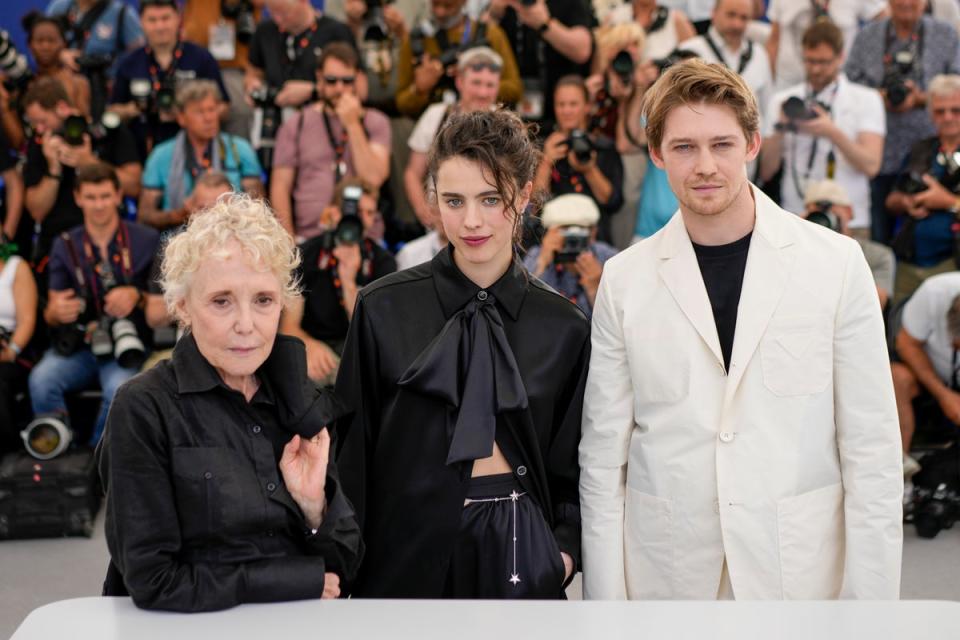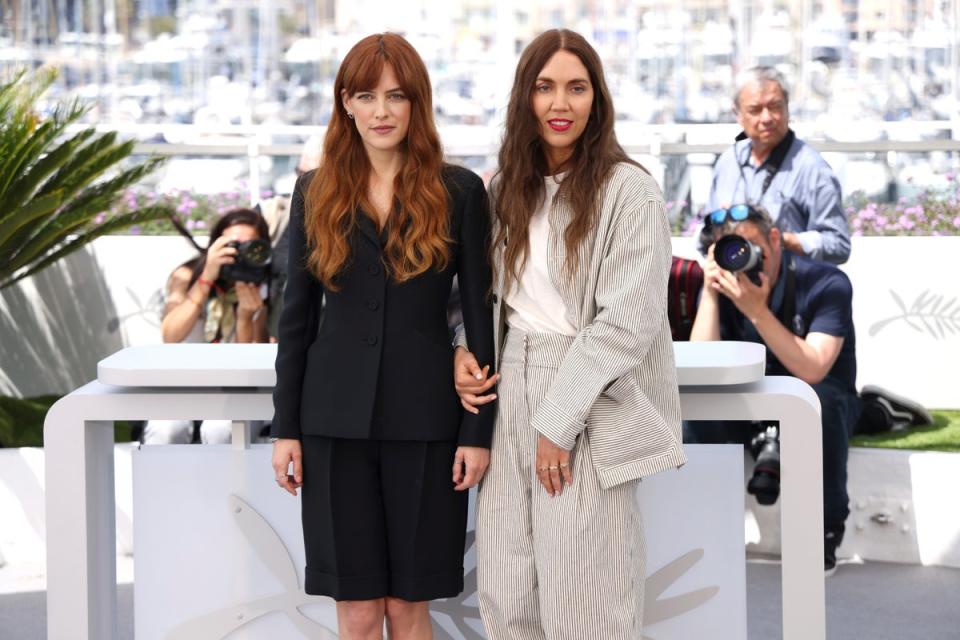Cannes 2022 roundup: A welcome return filled with exhilaration, nerves and remarkable debuts

There was a strange mood at this year’s Cannes Festival. On the one hand, the exhilaration was palpable. This was the first proper Cannes since before the pandemic. The sun blazed. The city was packed. The Covid regulations were no more. Festival goers were making up for lost time, bingeing on films, having face-to-face meetings with contacts they hadn’t seen in over two years and attending as many parties as they could. They even enjoyed complaining about the festival’s new absurdly bureaucratic and inefficient online ticketing system.
At the same time, a nervousness was also apparent. Cannes visitors like to block out the outside world and inhabit their own little bubble, but that wasn’t as easy as usual given the sizeable Ukrainian delegation and the surprising number of Russians who were also in town.
When I spoke to him last weekend, Romanian director Cristian Mungiu (a former Palme d’Or winner and in contention for the festival’s awards again this year with his new feature RMN) made an impassioned plea for “decency”. He argued that festival goers shouldn’t be gadding around at parties while the war in Ukraine was still raging. The parties, though, continued much as normal. Without them, and without the red-carpet premieres, Cannes simply wouldn’t be Cannes. The films in official selection were a very mixed bag. The festival opened with Michel Hazanavicius’s zombie comedy, now called Final Cut. (It had to change its original title, Z, when the Ukrainians complained that “Z” is one of the symbols of the Russian military, equivalent in their eyes to the swastika).
Final Cut, a remake of a Japanese movie, seemed to me to be utterly dreadful, even worse than the Jim Jarmusch zombie spoof, The Dead Don’t Die, that opened the 2019 festival. It’s a film within a film. A hack director (Romain Duris) is making a low budget movie when life begins imitating art and the zombies really come to life. Beyond a few satisfying decapitations and certain scenes in which characters become drenched in both real and make-believe blood, the film offered very little. French audiences, though, seemed to find it uproariously funny.
Far better was the rites of passage/climbing film, Eight Mountains, set in Italy but directed by the two Belgians, Felix Van Groeningen and Charlotte Vandermeersch, who both learned to speak Italian so they could make it. This was like a European arthouse version of Brokeback Mountain but minus the gay sex. It’s the story of the lifelong friendship between Pietro, who has grown up in the city, and Bruno, who comes from mountain stock and stands for a traditional way of life that is fast fading. It boasts awe-inspiring cinematography from Ruben Impens (who also shot last year’s winning film Titane) of both the Italian Alps and the Himalayas (where Pietro briefly ventures). It was an earnest but moving drama about friendship, family and the lure of the mountains.
The brilliant Phantom Thread star Vicky Krieps would surely have been the main contender for the festival’s Best Actress award – if only she had been allowed to compete for it. She had two films in the festival but neither in the main competition. She starred in Emily Atef’s terminal illness drama, More Than Ever, which was respectfully received, but she went on to earn rapturous reviews for her astonishing performance as Empress Elisabeth (“Sissi”) of Austria-Hungary in Marie Kreutzer’s subversive new costume drama, Corsage. Her Sissi was a very modern figure, a fitness fanatic who loves horse riding and fencing and enjoys a cigarette but who struggles with the etiquette of court. Krieps brought humour, defiance and immense pathos to her role.
Another very striking female performance was that of young American Margaret Qualley in Claire Denis’s competition entry, Stars at Noon. Adapted from a Denis Johnson novel, this has a Graham Greene-like plot. Qualley plays Trish, an American adrift in mid-1980s Nicaragua, portrayed here as an utterly corrupt police state. She’s ostensibly a freelance journalist but her press credentials have been revoked. She’d like to leave but can’t afford or organise a flight out. Joe Alwyn is the mysterious Englishman in a white suit who turns up in her hotel. They quickly become lovers. It’s not clear whether he is a businessman or a spy.

Denis turns normal thriller conventions on their head, approaching her story in a sensuous, laidback way. Trish is in desperate circumstances, selling sexual favours to politicians and army officers to keep herself alive, but Qualley played her with an appealing cartoonish energy.
Elvis fever gripped the crowds late on in the festival with Baz Luhrmann’s new biopic receiving its world premiere out of competition. It gave a sprawling but superficial account of The King’s life that paid almost as much attention to Colonel Parker (Tom Hanks), Presley’s crooked manager, as to Presley himself. A much leaner music movie screening in Cannes was Ethan Coen’s admirably terse documentary, Jerry Lee Lewis: Trouble in Mind. Brilliantly edited, this told the story of how Lewis, the piano playing maverick, became a huge star but then saw his career falter after he married his 13-year-old cousin. Coen, working without his brother Joel for a change, didn’t use voice over or new interviews, relying instead on archive material. The film was very tight (it runs little over an hour) but still did an excellent job of portraying the “Great Balls of Fire” singer in all his contradictions. He’s a drunkard, womaniser and an extreme egotist but, like Elvis, he lives to perform – and, unlike Elvis, he’s still around today.
Another rock doc, Brett Morgen’s David Bowie film Moonage Daydream was also well-liked by critics. Again archive-based and including 70 per cent new material, it included eye-popping new footage of its subject in his “Ziggy Stardust” years and in his Berlin period. Bowie’s story was told through his own interviews and ruminations. Incongruously, some of the more revealing insights into the chameleon-like star came from interviews he gave to British chat shows with middlebrow hosts like Russell Harty and Mavis Nicholson.
French director Julie Bertuccelli’s brilliant Jane Campion documentary, The Cinema Woman (which screened in the Cannes Classics section) exposed yet again the male chauvinism within the industry. It had material from the 1997 50th anniversary festival when all previous Palme d’Or winners were invited back to the festival. What seemed most shocking to audiences watching it in Cannes last week was that nobody 25 years ago seemed to think it was the slightest bit unusual to have only a single woman director represented in a sea of male directors, all looking like penguins in their black ties.

The UK didn’t have a film in competition but one of the best films in sidebar section Critics’ Week was Aftersun, the directorial debut from precocious new Scottish talent, Charlotte Wells. This was a low budget but very poignant, brilliantly observed drama about a young father Calum (Paul Mescal from TV’s Normal People) on holiday in a cheap resort in Turkey with his 11-year-old daughter, Sophie (Frankie Corio). The film was produced by Barry Jenkins and boasted the same improvisatory feel and heart-rending lyricism found in Jenkins’s Oscar-winning Moonlight. Showing her two protagonists at karaoke nights, playing pool or going on jaunts to historical sites, Wells portrayed brilliantly their very complicated but tender relationship.
Another equally remarkable debut was War Pony, co-directed by Riley Keough (Elvis Presley’s granddaughter) and Gina Gammell. This was a drama set in South Dakota’s Pine Ridge reservation (where Andrea Arnold shot some of her 2016 feature American Honey, in which Keough co-starred). Its Native American main characters were young Oglala Lakota man, Bill, a hustler with a twinkle in his eye, and 12-year-old boy Matho, already into alcohol, drugs and petty crime. They were living in very tough circumstances but were resilient and quick-witted. Keough and Gammell told their stories with sensitivity and flights of surrealistic humour. Even before the festival ended, the film picked up this year’s Palme Dog, the tongue-in-cheek prize given every year for best canine performance. This went to the poodle adopted by Bill, to whom he remains utterly devoted, even when the dog eats the boss’ turkeys.
A far darker debut was young Ukrainian director Nakonechnyi’s Butterfly Vision, a grimly compelling story about a woman army veteran returning home after being captured by the Russians during the Donbas conflict. She has been tortured, raped and discovers she is pregnant. Now, she has to deal with an unsympathetic reaction to her plight from family and former army colleagues. Rita Burkovska gave a raw and very intense performance as the traumatised heroine in a film which seemed more timely than ever.

As the festival reached the final weekend, the consensus was that the competition had been solid but not spectacular. Belgian wunderkind Lukas Dhont’s second feature Close, a small-scale, closely focused drama about a soon to be ruptured friendship between two teenage boys, excited some critics. Others admired Triangle of Sadness, Swedish director Ruben Ostlund’s highly enjoyable satire in which some very rich passengers on an ocean cruise got their comeuppance. Iranian serial killer film Holy Spider, directed by Ali Abbasi, provoked plenty of controversy. James Gary’s Armageddon Time, an autobiographical, rites of passage drama set in New York in the early Eighties, was its director’s most heartfelt and personal film – and had a wonderful, unusually understated performance from Anthony Hopkins as a worldly wise Jewish grandfather.
Several other familiar names showed new films: David Cronenberg (whose latest foray into body horror Crimes of The Future got only middling reviews), the Dardenne brothers; the veteran Polish director Jerzy Skolimowski (whose fable about a donkey EO had plenty of champions) and the latest features from leading Korean and Japanese directors, Park Chan-wook and Hirokazu Koreeda.
At Saturday night’s award ceremony, it was a case of the Belgians are coming. The Dardenne brothers (who received a special prize marking Cannes’ 75th anniversary), Lukas Dhont (who shared the Grand Prix with French director Claire Denis) and Felix Van Groeningen and Charlotte Vandermeersch (who shared the Jury prize) were all among the prizes, an astonishing achievement for a tiny filmmaking nation.
Much of the talk over the past 10 days had been about renewal and re-setting as cinema emerges from the pandemic. Giving the top honours yet again to the same old faces was therefore bound to be seen by some as a backward step. As it turned out, newcomers and old-timers shared the main awards. Dhont, who has just turned 30, was a winner. Swedish director Tarik Saleh won Best Screenplay for his Cairo-set thriller, Boy From Heaven; the venerable Skolimowski shared the jury prize for his donkey tale, Eo; Song Kang Ho won Best Actor for his performance in Japanese director Hirokazu Kore-eda’s latest family drama, Broker, and seasoned Korean auteur Park Chan-wook picked up Best Director for his drama Decision to Leave. It was heartening to see the festival’s main award, The Palme D’Or, go to a film as accessible and entertaining as Ostlund’s Triangle of Sadness. (It was Ostlund’s second Palme D’Or after The Square in 2017.)
There will be disagreement over the jury’s choices (there always is) but this year will still be remembered as one of the more significant editions in the festival’s recent history. It has been taking place at a time of growing anxiety about cinema going. Post-Covid, filmgoers have been ready to buy tickets for Spider-Man and The Batman but very reluctant to watch anything else. The past week and a half, though, have shown that the glorious, global art house tradition that Cannes celebrates remains as rich and vibrant as ever.
(Cannes Festival ran 17–28 May)

 Yahoo News
Yahoo News 
